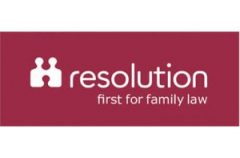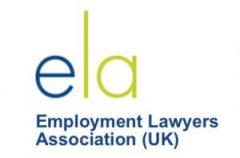You may have heard of someone setting up a Trust Fund or being the beneficiary of one. Rachel Burnett explains what they are, why, when and how they are used.
A Trust is a legal structure that manages assets (property, land, cash or shares) and can be put in place during a person’s lifetime or on their death through their Will.
There are a number of reasons why someone may set up a Trust. For example, you may have a child or family member who may not be able to manage their own finances, and a Trust structure could allow you to leave a sum of money in the hands of the Trustees you have appointed to manage for the benefit of that family member.
Trusts can also be a useful estate tax planning tool. For example, if a grandparent wishes to support their grandchildren financially, they could put funds into a Trust which could be used to contribute towards their school fees. From an estate planning perspective, it is possible that if the Grandparents survive for a period of seven years from the date of the gift into the Trust, that the value of the gift is not included as part of their estate when calculating their Inheritance Tax Liability. By contrast, regular generous gifts are more likely to become subject to Inheritance Tax. In this scenario, there may also be income tax benefits as assuming the grandchildren have no other income, payments of up to £12,570 can be made for their benefit with no net tax paid.
Components of a Trust
Whatever your reason for considering a Trust, all Trusts must have certain components;
- Settlor – This is the person who sets up the trust by transferring an asset from their control into the control of the Trustees.
- Trustees – The Trustees are the people who are responsible for the running of the Trust.
- Beneficiaries – These are the people who benefit from the Trust.
- Trust Fund – This can be property, land, cash or shares.
There are a number of different types of Trusts, some of the most popular being;
-
Bare – The simplest form of Trust. This type of Trust is often used to hold assets for minors. Once the minor has turned 18 the Trustees transfer the assets to the Beneficiary.
-
Life Interest – Also known as an Interest in Possession Trust this type of Trust sees the Trust fund split into two components – the income element and the capital element. The income is left to the life tenant e.g. a partner or spouse for their benefit for a prescribed period of time, such as until the date of the life tenant’s death or until the life tenant remarries. This event triggers the termination of the Trust, which then sees the capital passing to the remainderman (the person who is entitled to inherit).
-
Discretionary – Perhaps the most flexible of the Trusts. This type of Trust sees the Settlor leaving the Trust Fund in the hands of the Trustees. The Trustees have complete discretion when making decisions about how the Trust Fund should be used and distributed among the Beneficiaries.
In this type of Trust, the name Beneficiaries do not have a right to receive a benefit from the Trust, only the potential of being a Beneficiary, should the Trustees’ decide to exercise their discretion in their favour.
-
Vulnerable Persons – This is a very specific type of Trust and is used in cases where the Beneficiary is disabled and allows for a more favourable tax treatment.
Whenever you are making any legal decisions there are always a number of factors to consider, in the case of setting up a Trust the following should be taken into account;
- Who are going to be the Trustees – do I need to consider appointing a professional Trustee?
- What are the tax implications – income, capital gains and inheritance tax?
- Is there another way to achieve my objectives without the need for a Trust?
- What are the likely on-going costs and responsibilities of setting up a Trust?
How we can help
At THP Solicitors we have experience of advising, setting up, managing and terminating Trusts. We will take the time to talk to you about all of your options to ensure that you are fully informed and confident in your Trust choices.
Please contact our Wills, Trusts & Estate Administration team to see how we can assist on 0118 975 6622 (Lower Earley office) or 01491 570900 (Henley-on-Thames office) or send us a confidential email to office@thpsolicitors.co.uk









